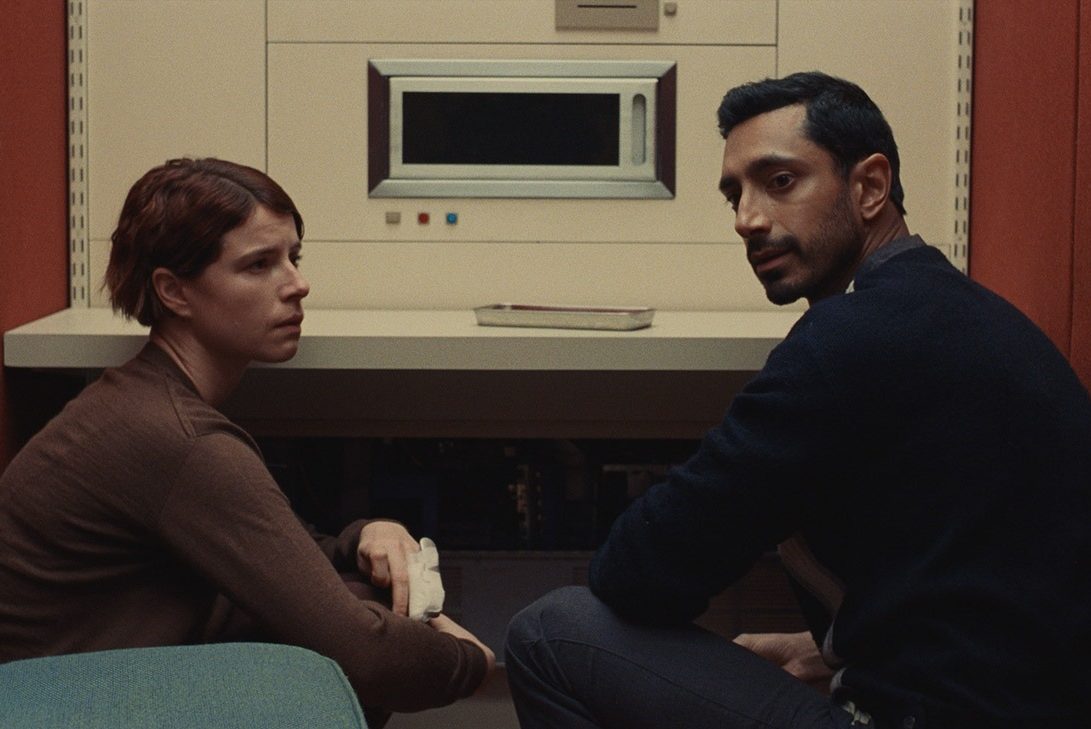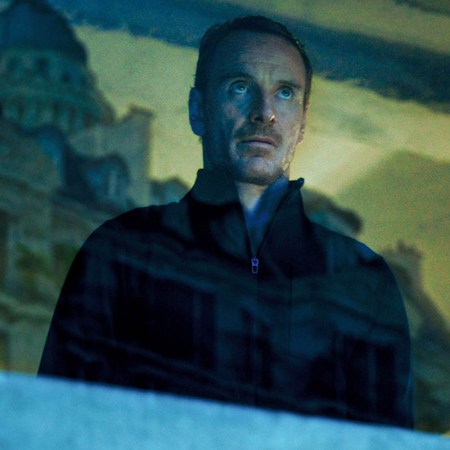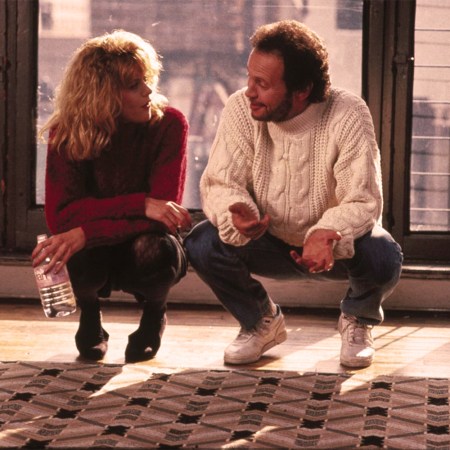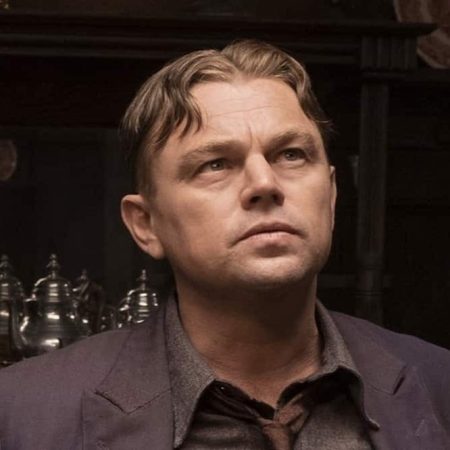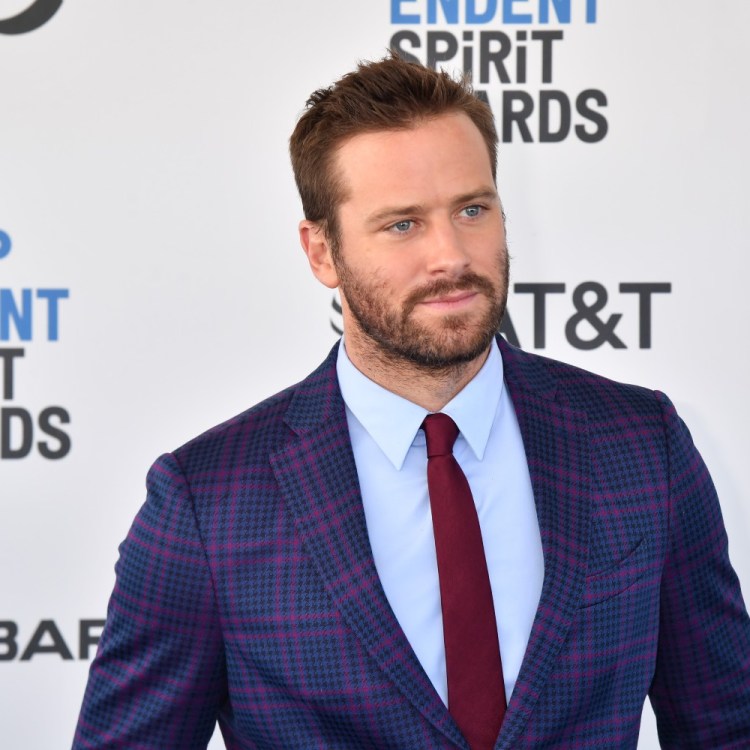According to a report published by London’s Imperial College Business School, the dating scene of 2040 will be defined by behavior-tracking devices, real-time data analysis and, for those eternal singletons willing to spend $1,000 to meet a potential life partner, matchmaking via advances in DNA. It’s a highly clinical, and some would say supremely depressing, approach to the quest for true love. However, it’s one that appears to have captured the hearts of Hollywood.
Indeed, you don’t have to wait 17 years for such a dystopian vision. Premiering in theaters today (Oct. 27) before hitting Apple TV+ a week later, Fingernails is just the latest in a long line of dramas to explore the potential for discovering soulmates through science.
Directed by Greek filmmaker Christos Nikou, the lo-fi sci-fi takes place in a retro-futuristic world where a unique medical test essentially removes all autonomy from any couples who willingly sign up. All they need to do is get a fingernail violently ripped off in a manner Jigsaw would be proud of, pop it in what looks to be a primitive microwave and voila, they’re either destined for a happy ever after or heading for the divorce courts.
Other than an opening title card which states the fingernail is where heart problems first clearly manifest themselves, Nikou doesn’t really attempt to explain the thinking behind the process. Nor does the film explain why so many people would leave their romantic fates to such an archaic-looking appliance. But as Jessie Buckley’s leading lady gradually begins to realize, it’s not always the surefire thing it claims to be.
The Oscar nominee plays Anna, a woman four years into her machine-approved relationship with Ryan (this year’s unlikely heartthrob Jeremy Allen White), whose ripped physique and general amiability is now struggling to compensate for his low sex drive and obsession with deathly dull TV documentaries. And on meeting Riz Ahmed’s far more engaging Amir, a co-worker at the test-manipulating Love Institute she secretly works at, she starts to question her own results even further.
The fact Anna has fought against her natural instincts for so long is one of many ways in which Fingernails astutely reflects on society’s over-reliance on tech. The subjects already happily partnered have so much faith in the outcome they instantly separate on its say-so. And those worried about failing take on classes intended to game the system: lessons range from the innocuous (Hugh Grant marathons and karaoke in French, the language of love, obviously) to the unsettling (sniffing out a partner in a busy space, shock therapy tactics to spark longing whenever they leave their side).
That’s a theme explored further by AMC’s one-season wonder Soulmates. Set roughly in the mid-2030s, the six-part anthology revolves around Soul Connex, a firm promising a 100% love match purely through genetics. Like Fingernails, its first episode, “Watershed,” focuses on a relatively contented yet slightly unfulfilled woman (Succession’s Sarah Snook) wondering whether her other half really is “the one.” Inevitably, things don’t end well.
In fact, the concept only seems to invite pain throughout. In “Break on Through,” two believers who discover their perfect matches have already passed away join a death cult on the vow they’ll finally get to meet their soulmates from beyond the grave. In “The Lovers,” a femme fatale uses her hacking skills to engineer a match that will bring down a college professor with a twisted past. What’s interesting is even when Soulmates provides a relatively uplifting denouement — the Mexican crime spree/meet-cute of “The Layover,” for example — it’s in spite of the DNA tests and not because of them.
It’s a similar story with The One, the 2021 adaptation of John Marr’s same-named novel which introduced a rather far-fetched murder mystery into proceedings. Here, Hannah Ware stars as the cutthroat CEO of a pioneering dating agency which claims to guarantee eternal harmony using nothing more than a single strand of hair.
Continuing Netflix’s trend for flashy yet ultimately empty potboilers, the eight-part series includes a subplot in which, now fast becoming a trope, the female half of a comparatively happy relationship threatens to jeopardize things with an obsession over the unknown. Meanwhile, everyone who’s already succumbed to the temptation — including the poor Spaniard who ends up in a coma on traveling to her London-based match — appears to find themselves in peril.
Just in case you think the entertainment industry must be secretly shorting shares against the likes of DNA Romance and GenePartner — real-life firms who promise instant chemistry through molecular biology (yes, an early form of DNA dating has already well and truly arrived) — then there are just as many shows which have adopted a less nihilistic approach to the act of surrendering all romantic responsibility.
Take Osmosis, for instance, the underrated Netflix original that took viewers behind the scenes of a new app which decodes brain data to determine everlasting love. Restricting the process to a dozen beta-testers, the Parisian drama isn’t without its cautionary tales. One sex-addicted trialist is removed from the experiment following a case of domestic abuse. Still, by sending a few off into the sunset with their perfect match, it tentatively argues that technology and humankind can sometimes co-exist without causing total and utter misery.
Korean drama Love Alarm, also screening on Netflix, is similarly fair in its heightened teen-oriented spin on the trend. Its app designed to measure romantic feelings (the show never makes it clear exactly how) and alert the object of their affections within a 10-meter radius inevitably causes problems: alienation for those whose phones never ring, embarrassment for those who want to keep their secret crush a secret, a new criminal underworld which offers popularity boosts for cold hard cash. Nevertheless, as shown by the newlyweds who happily flash their mobiles to celebrate their origin story, the concept isn’t entirely without merit.
And then, perhaps surprisingly considering its primarily despondent nature, there’s Black Mirror. Admittedly, the fledgling connection between Joe Cole’s Frank and Georgina Campbell’s Amy in season four episode “Hang the DJ” derives from a mathematical rather than a scientific equation, one which tests compatibility across 1,000 simulated realities. But it was still an unusually positive insight — well, depending on your interpretation — into the possibilities of dating technology.
It’s perhaps little surprise Tinseltown has become so enamored. The increasing prevalence of dating apps — 438 million users are expected to be swiping left and right by 2027 — essentially means there’s now a captive audience when it comes to tales of romance conducted solely via technology. Coincidentally, The One and Soulmates also both arrived during the pandemic, a time when it wasn’t logistically possible to look for love the traditional way.
And you can see why the more scientific stories are resonating, too. Online dating has become a minefield of ghosting, catfishing and, like the platforms most of the shows above stream on, option paralysis. The idea of handing over all liability to a third-party, who can not only ensure your date will be happy to meet you, but that they’re your kindred spirit? And you don’t have to spend hours filling in a witty bio, either? Well, that’s always going to be an appealing prospect, even if the happy endings are few and far between.
The soulmate guarantee is perhaps taken to its most extreme in I’m Your Man, the 2021 German dramedy which enabled Dan Stevens to both show off his multilingual skills and ability to convincingly portray an android. The Brit excels as a walking database specifically designed to sweep Maren Eggert’s highly-strung academic off her feet for a ground-breaking tech scheme she reluctantly signs up for. While the latter concludes we aren’t necessarily meant to have every need fulfilled, her unblinking companion attunes himself to human life so effortlessly, as well as charmingly, that some form of compromise between man and machine seems entirely plausible.
The chaotic realm of TV dating shows is also now gradually realizing that leaving things to chance isn’t particularly conducive to the end goal, although, as you’d expect, their science is a little more pie in the sky. Amazon’s Cosmic Love, for instance, matches 20 singletons based on their astrological star signs. While HBO’s recent jaw-dropping British import Naked Attraction allows those willing to go full-frontal on national television the opportunity to seek out an equally uninhabited partner based on animal magnetism, game host Anna Richardson will often try to explain the biology behind certain physical preferences, too. When you consider the low success rate of cognitive match-making shows such as Married at First Sight, then why not trust in something a little more methodical?
On the other hand, old romantics will argue The Big L is all about taking a leap into the unknown. It’s hard to imagine any DNA-driven love story recapturing the sweeping swoonsomeness of a Casablanca, The Notebook or Pride and Prejudice. But for now, the concept of precision-tooled relationships is being treated by filmmakers with a healthy dose of skepticism, anyway. Indeed, Hollywood might be fascinated with the billion-dollar question of “Can true love ever be quantifiable?” But we still might have to wait a while before a rom-com fairytale begins with a trip to a genetics lab.
This article was featured in the InsideHook newsletter. Sign up now.
